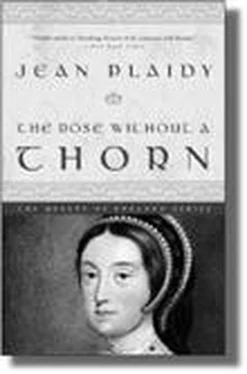Jean Plaidy - Mary, Queen of France - The Story of the Youngest Sister of Henry VIII
Здесь есть возможность читать онлайн «Jean Plaidy - Mary, Queen of France - The Story of the Youngest Sister of Henry VIII» весь текст электронной книги совершенно бесплатно (целиком полную версию без сокращений). В некоторых случаях можно слушать аудио, скачать через торрент в формате fb2 и присутствует краткое содержание. Жанр: Старинная литература, на русском языке. Описание произведения, (предисловие) а так же отзывы посетителей доступны на портале библиотеки ЛибКат.
- Название:Mary, Queen of France: The Story of the Youngest Sister of Henry VIII
- Автор:
- Жанр:
- Год:неизвестен
- ISBN:нет данных
- Рейтинг книги:4 / 5. Голосов: 1
-
Избранное:Добавить в избранное
- Отзывы:
-
Ваша оценка:
- 80
- 1
- 2
- 3
- 4
- 5
Mary, Queen of France: The Story of the Youngest Sister of Henry VIII: краткое содержание, описание и аннотация
Предлагаем к чтению аннотацию, описание, краткое содержание или предисловие (зависит от того, что написал сам автор книги «Mary, Queen of France: The Story of the Youngest Sister of Henry VIII»). Если вы не нашли необходимую информацию о книге — напишите в комментариях, мы постараемся отыскать её.
Mary, Queen of France: The Story of the Youngest Sister of Henry VIII — читать онлайн бесплатно полную книгу (весь текст) целиком
Ниже представлен текст книги, разбитый по страницам. Система сохранения места последней прочитанной страницы, позволяет с удобством читать онлайн бесплатно книгу «Mary, Queen of France: The Story of the Youngest Sister of Henry VIII», без необходимости каждый раз заново искать на чём Вы остановились. Поставьте закладку, и сможете в любой момент перейти на страницу, на которой закончили чтение.
Интервал:
Закладка:
Time! he thought. I need time. He hoarded time as once he had hoarded gold; he was fighting with all his strength to hold off death a little longer until such time as he could make peace with himself.
But death would not wait.
Mary came to his apartments, planning what she would do and say. She would go to his bed and put her arms about his neck. “I will not call you Your Highness, but Father,” she would tell him. “Oh, Father, we do love you … Henry and I. We understand that it was necessary for you to be stern with us. We love to dance and play and we often forget our duty … but we want to be good. We want to be the sort of children of whom you can be proud.”
Did that sound false? For false it was. Neither she nor Henry wanted to be anything but what they were.
“It is the Lady Mary,” said one of the pages to another.
“I have come to see my father.”
“My lady, the priests are with him.”
Holy Mother, thought Mary, is it then too late?

His body had been taken from Richmond to Westminster, but not with any speed for, although he died on the 21st day of April, he was not moved until the 9th of May.
There was reason for the delay. An image of him in wax must be made ready to be clad in his robes of state and placed in the coffin, and remain there during the funeral, holding the ball and scepter in its hands. The chariot which would hold the coffin had to be covered in black cloth of gold; and all those noblemen who lived far from Court must be given time to arrive for the ceremony.
It was to be a grand funeral. The King had left money to pay for masses which were to be said for his soul, as he asked, for as long as the world should endure. He had become very uneasy during his last days on earth when he had realized that he would not have time to make all the amends he had planned.
The new King had already left Richmond for the Palace of the Tower. That was well, because he found it difficult to hide his elation. His father was dead and he had been a good father; but what a stern one! And had he not treated his son as though he were a child?
Freedom! thought Henry VIII, dreaming of his future.
And Mary, while she prayed for the soul of her father, could not prevent her thoughts wandering as she considered what a change this was going to make to all their lives.
It was a great occasion when the funeral cortège passed through the capital. At London Bridge the Mayor and the City Companies received it and merchants mingled with apprentices in the crowds which followed it to St. Paul’s.
As was the custom with the dead, people remembered virtues rather than failings.
And when all was considered, his epitaph was as good as any king could hope to achieve.
“He brought us peace,” said the people.
Yet never had they cried: “The King is dead. Long live the King!” with more hope, more exultation than they did in those spring days of 1509.
The sorrowing Countess of Richmond sat with her grandchildren. She had an arm about the girl but her eyes were on the boy.
“It was your father’s wish that I should continue to guide you, Henry,” she explained. “My dear grandson, you will find the task before you not always a glorious one. There is more to kingship than riding through streets and listening to the cheers of the crowd.”
“I know it well,” answered Henry, not as coolly as he would wish, for he was still in awe of his grandmother.
“So I shall always be at hand to give you my counsel and, remembering your father’s wish, I trust you will consider it.”
Henry took her hand and kissed it.
He would always remember, he assured her.
And Mary, seeing the shine in his eyes, knew that his thoughts were far away in the future. He was looking at freedom stretching out before him—glorious, dazzling freedom. He was eighteen and King of England. At this moment he was too much intoxicated by the joy of being alive himself to think of anything else.
Oh, thought Mary, it will be wonderful now he is King! England will be merry, as she was meant to be, and all the country will be in love with such a sovereign.
A cold fear crept into her mind. And where shall I be? How much longer can I hope to remain in England? Am I forgetting that, over the sea, a bridegroom is waiting for me? But not yet … not yet.
She was too much of a Tudor not to live in the moment.
Mourning for King Henry VII could not be expected to last long when there was a young handsome man waiting to put on the crown.
Hope was high throughout London and the country. There would be joy such as had never been known before; gone were the days of high taxation. He had shown his intentions by throwing Empson and Dudley—those notorious extortioners—into the Tower; he had proclaimed that many debtors to the crown would be excused. He made it clear that he wanted the old days of anxiety to be forgotten, that the merry era might begin without delay.
He rode through the streets, this golden boy, and often the Princess of Castile rode with him; he so handsome, she so lovely; and the crowds cheered themselves hoarse for these charming young people.
There was another who rode with the King, for he had decided after all to marry his brother’s widow, and this was a match which found favor with the people, for Katharine was known to be meek and serious by nature; the fact that she was a few years older than her bridegroom seemed favorable too. She will steady him, said the people. For he is gay and over merry, bless him. It will be good for him to have a serious wife.
So the days of mourning were quickly over, for how could the people mourn when they were about to see their King and Queen crowned?
On the eleventh of June—less than two months after his father’s death—Henry married Katharine and the coronation of the pair was arranged for the twenty-fourth of that month.
Mary, who was then three months past her thirteenth birthday, must of course take a prominent part in the celebrations.
What a joy it was to ride in the procession from the Tower to Westminster, to see Archbishop Warham anoint the head of her beloved brother.
His open face shining with delight, he looked magnificent in his robe of crimson velvet edged with white ermine which fell away from his massive shoulders. Beneath it his coat of cloth of gold was visible and he looked even bigger than usual because he sparkled with diamonds, emeralds and rubies. Katharine was beautiful too in her gown of white satin, and her lovely hair loose about her shoulders.
“Did you ever see one so handsome as the King?” asked Mary.
Then she saw who it was who was standing beside her. In his fine garments, worn in honor of the occasion, he was strikingly handsome himself.
“Never,” murmured Charles Brandon, smiling down at her.
She studied him speculatively, and pictured him in crimson velvet and ermine, and she thought: There is one to equal Henry, and that is Charles Brandon.
And she was suddenly very happy to be in a world which contained those two.
A coronation must be celebrated with appropriate entertainments, and Henry assured his subjects that because he must mourn his father he was not going to cheat them of their pleasures. They must look forward not back; and the glittering pageants they would witness should be symbols of the future.
At the banquets Mary found herself seated close to her brother and his wife; and where Henry was, there was his good friend Charles Brandon. In the dances which followed the feasting Mary often found herself partnered by this man, and was dissatisfied when he was not at her side; she was sure that he knew this and endeavored to remain with her.
Читать дальшеИнтервал:
Закладка:
Похожие книги на «Mary, Queen of France: The Story of the Youngest Sister of Henry VIII»
Представляем Вашему вниманию похожие книги на «Mary, Queen of France: The Story of the Youngest Sister of Henry VIII» списком для выбора. Мы отобрали схожую по названию и смыслу литературу в надежде предоставить читателям больше вариантов отыскать новые, интересные, ещё непрочитанные произведения.
Обсуждение, отзывы о книге «Mary, Queen of France: The Story of the Youngest Sister of Henry VIII» и просто собственные мнения читателей. Оставьте ваши комментарии, напишите, что Вы думаете о произведении, его смысле или главных героях. Укажите что конкретно понравилось, а что нет, и почему Вы так считаете.












